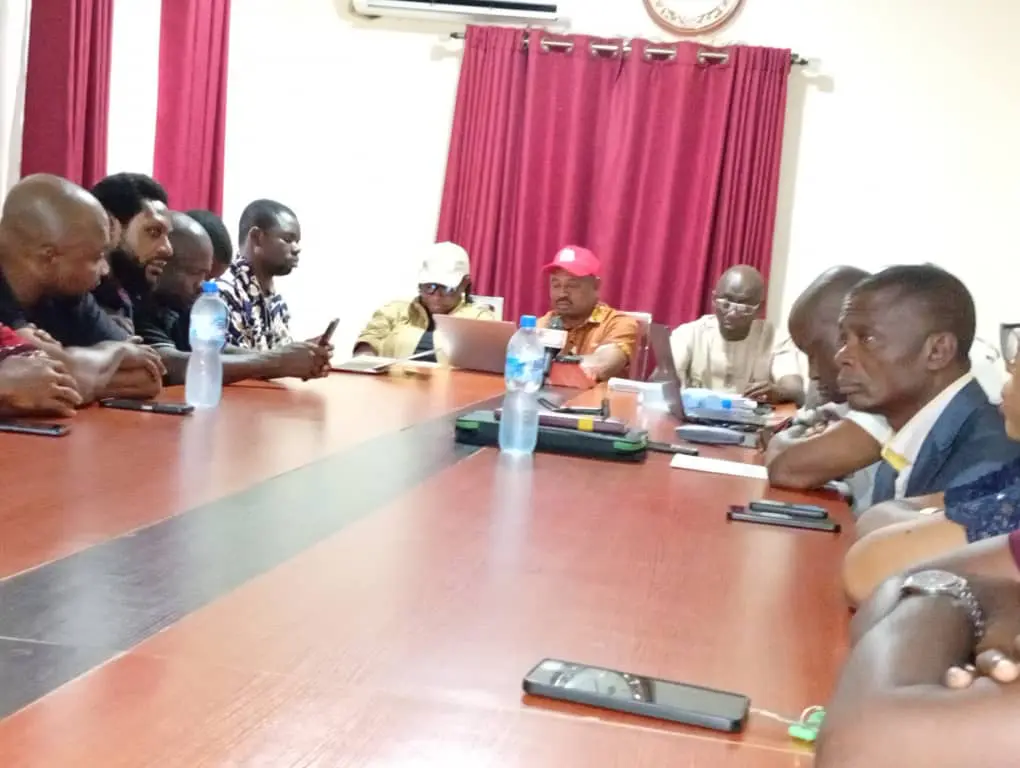If there were a Hall of Fame for Nigeria’s most predictable headlines, “ASUU declares strike” would be right at the top. Sadly, here we are again. The Academic Staff Union of Universities (ASUU) has declared yet another two-week warning strike, citing the Federal Government’s (FG’s) failure to meet long-standing demands. This is not the first time ASUU is making that claim, and, of course, it’s also not the first time FG is claiming that they have.
As if that wasn’t enough, FG has reportedly instructed Vice Chancellors (VCs) to implement a “no work, no pay” directive, effectively cutting off the salaries of striking lecturers. It’s a familiar scene — the same players, the same arguments, the same collateral damage. And once again, it’s not the government or ASUU who’ll feel the brunt of it.
It’s the students.
ASUU and FG are the proverbial elephants here. And the students continue to get trampled on. Over and over again. Students have had to endure strikes that have lasted any period from two weeks and nine months. And yes, they have gone on strike for nine months.
Same Script, Different Year
This no longer feels like a negotiation, but a ritual of frustration. Every few years (or sometimes months), ASUU cries out that the government has failed to honor agreements. FG, like clockwork, responds with denial or delay. Talks happen, committees are formed, promises are made…then we’re back here again in a few months.
Classes are suspended, campuses go quiet, and students are left stranded, frustrated and confused. The 2025 calendar is here, but somehow our education sector is still stuck in 2005.

The One Certainty: Whoever Wins, Students Lose
ASUU says it’s fighting for better funding, improved working conditions, and revitalization of public universities. These are all noble causes, as Nigerian universities are underfunded and overstretched.
However, the bitter truth is that each strike chips away at the very system they should be protecting. While the demands are valid, the weapon they keep reaching for, indefinite strikes, has become blunt. And my mother will always say “if whatever method you’re using doesn’t achieve the desired result, change the method”
At the same time, FG’s “no work, no pay” stance feels more like punishment than problem-solving. Rather than addressing grievances, it deepens hostility. It’s a lose-lose situation paraded as strictness. Especially if ASUU’s demands have indeed been unmet.
The “No Work, No Pay” Dilemma
The decision to enforce a “no work, no pay” rule might seem like a firm stance, but in practice, it often escalates the conflict. When lecturers feel cornered, the strikes get longer. When the strikes get longer, students suffer more. An uncooperative government essentially means “do your worst”, and people often hate being told to do their worst. In this case, ASUU is even more determined to do their worst, especially seeing as they won’t feel the direct consequences of this “worst”.
This is not the first time the policy has been used. And each time, the result is the same: lecturers dig in, negotiations stall, and months of academic time evaporate into thin air. If the goal was to end strikes by making them less “comfortable,” the results so far say otherwise. All it has done is make education weaker.
Education Shouldn’t Be This Fragile
It’s heartbreaking that in 2025, Nigerian students still live with the anxiety of “strike season.” No one should have to treat university education like a gamble, unsure if they’ll graduate in four years or seven.
Public universities should be temples of stability, not battlegrounds between unions and government agencies. Federal Universities have long been the most reliable tertiary institutions in the country, but people are losing faith in it, and are opting for other options, specifically for this reason: strikes.
Education is supposed to be the backbone of a nation. But how strong can that backbone be when it’s constantly bent under the weight of unpaid salaries, broken promises, and neglected infrastructure?
Time to Stop the Cycle
If both ASUU and FG truly care about the future of education, they must find a new way to talk, preferably one that doesn’t leave classrooms empty.
- ASUU needs to rethink its strategy; endless strikes are no longer effective.
- The FG must prioritize education, not just in press releases but in actual budget allocations.
- And universities themselves need to explore more autonomy – financial and administrative – to reduce their dependence on federal politics.
Because right now, the system is failing the very people it was built to serve.

The Students Deserve Better
Students are not pawns. They’re the future of this country. And every time a strike begins, that future gets delayed a little more.
So yes, ASUU has valid grievances. Yes, the FG has fiscal limits. But neither of those facts justifies holding millions of young Nigerians hostage to a negotiation that never ends. The longer this cycle continues, the more it looks like no one is actually fighting for education, just fighting for position.
Conclusion
Once again, Nigerian universities have gone quiet. Lecture halls may soon sit empty. Campuses that should be buzzing with ideas are now ghost towns of uncertainty. And when the dust settles, there will be no real winners, just students trying to pick up the pieces of yet another interrupted semester.
At this point, maybe it’s not ASUU or the FG we should be questioning. Maybe it’s the system that keeps letting both sides believe this is normal.
If you liked this article, like and share it to others who might. Look around the site for more articles you might like. Subscribe to Join Inside Success Nigeria in educating and empowering young Nigerians through various initiatives. Follow us on Instagram to see exclusive interviews.



Leave a Reply